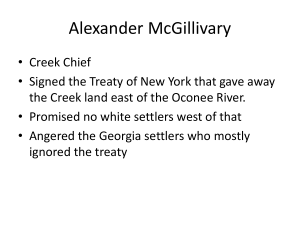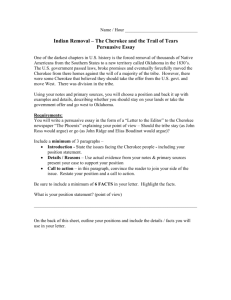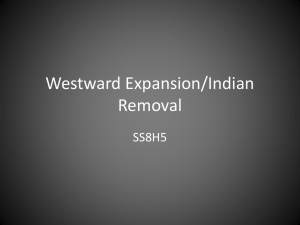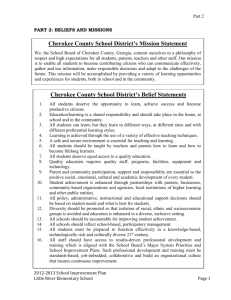Case Study KEY
advertisement
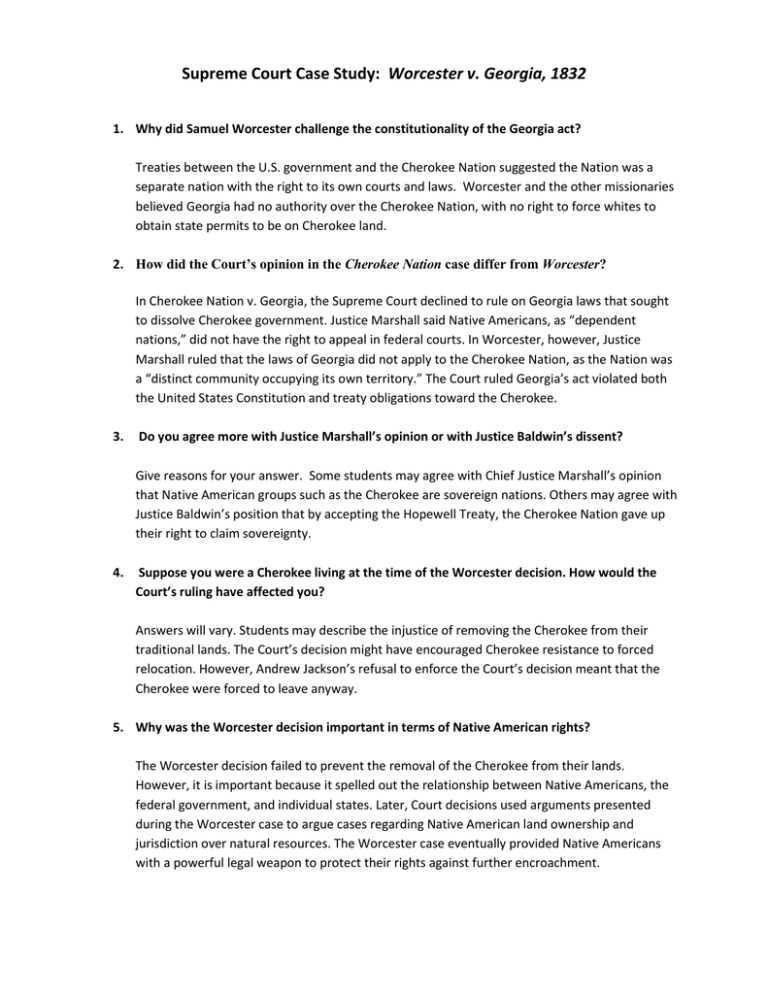
Supreme Court Case Study: Worcester v. Georgia, 1832 1. Why did Samuel Worcester challenge the constitutionality of the Georgia act? Treaties between the U.S. government and the Cherokee Nation suggested the Nation was a separate nation with the right to its own courts and laws. Worcester and the other missionaries believed Georgia had no authority over the Cherokee Nation, with no right to force whites to obtain state permits to be on Cherokee land. 2. How did the Court’s opinion in the Cherokee Nation case differ from Worcester? In Cherokee Nation v. Georgia, the Supreme Court declined to rule on Georgia laws that sought to dissolve Cherokee government. Justice Marshall said Native Americans, as “dependent nations,” did not have the right to appeal in federal courts. In Worcester, however, Justice Marshall ruled that the laws of Georgia did not apply to the Cherokee Nation, as the Nation was a “distinct community occupying its own territory.” The Court ruled Georgia’s act violated both the United States Constitution and treaty obligations toward the Cherokee. 3. Do you agree more with Justice Marshall’s opinion or with Justice Baldwin’s dissent? Give reasons for your answer. Some students may agree with Chief Justice Marshall’s opinion that Native American groups such as the Cherokee are sovereign nations. Others may agree with Justice Baldwin’s position that by accepting the Hopewell Treaty, the Cherokee Nation gave up their right to claim sovereignty. 4. Suppose you were a Cherokee living at the time of the Worcester decision. How would the Court’s ruling have affected you? Answers will vary. Students may describe the injustice of removing the Cherokee from their traditional lands. The Court’s decision might have encouraged Cherokee resistance to forced relocation. However, Andrew Jackson’s refusal to enforce the Court’s decision meant that the Cherokee were forced to leave anyway. 5. Why was the Worcester decision important in terms of Native American rights? The Worcester decision failed to prevent the removal of the Cherokee from their lands. However, it is important because it spelled out the relationship between Native Americans, the federal government, and individual states. Later, Court decisions used arguments presented during the Worcester case to argue cases regarding Native American land ownership and jurisdiction over natural resources. The Worcester case eventually provided Native Americans with a powerful legal weapon to protect their rights against further encroachment.

